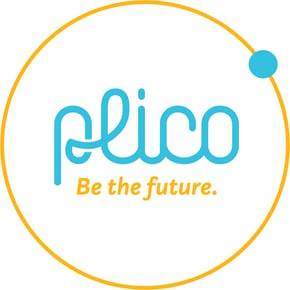Plico has joined forces with leading research institutions, governments, and industry partners to super charge the integration of electric vehicles (EVs) in Australia.
Race for 2030’s $3.4M Australian Strategic EV Integration Project (SEVI) will investigate ways to integrate EVs with renewable energy generation and storage through on-ground demonstrations led by project partners in WA, NSW and SA. The results will inform key stakeholders of how EVs, when coupled with energy storage, can be effectively, efficiently, and equitably integrated into the energy system, built environment, and society.
Plico CEO, Robbie Campbell said to be called upon to be part of an EV solution and help support the transition to clean energy and reach Net Zero – is exciting.
“Electricity production and consumption contributes some of the highest portion of emissions in Australia. Put simply, the way we produce and consume energy must change if we’re to meet the challenge of climate change head on.
But responsible transition also includes managing the impact it has on our economy, our communities, and households. The impact includes, in part, how we transition while considering job creation and managing household and business costs.”
“In a world where we demand action on climate change and being less reliant on fossil fuels, this is an opportunity to be part of an industry-led cooperative research centre, to work together on the challenges facing our electricity distribution networks, while strategically integrating EVs into the energy system,” Campbell said.
“We live in the sunniest capital city in Australia, we should all be able to benefit from solar and battery technology. Right now, every household could generate, store and access their own sustainable energy, to be used to power an EV, but you must have a battery connected to your solar panels,” he said.
"We are honoured to be part of this exciting EV integration cooperative.”
The adoption of EVs is growing rapidly worldwide, driven by aspirations of countries to decarbonise their transport sectors, and the growing affordability and extended range of EVs. As uptake of EVs accelerates, fundamental challenges are emerging that may slow the successful integration of EVs into our society. Like other Distributed Energy Resource (DER) solutions (such a demand flexibility, rooftop solar and battery storage), the integration of EVs into our homes, businesses, and electricity networks presents both a range of opportunities and challenges.
The RACE for 2030 Cooperative Research Centre launched SEVI in March 2023, partnering with Ausgrid, Australian Power Institute, Endeavour Energy, Planet Ark Power, Powertech Energy, NSW Government, SA Government, Selectronic, South Australia Power Networks, SwitchDin, Plico, Western Power and the Witchcliffe Ecovillage. The project is co-led by Curtin University and University of Technology Sydney, working with research partners Griffith University, Monash University, Royal Melbourne Institute of Technology, and University of South Australia.
For more information visit: https://www.racefor2030.com.au/race-for-networks/
About RACE for 2030 CRC
RACE for 2030 is an industry-led cooperative research program established to drive energy innovation across the supply chain to deliver improved, lower cost and lower emission energy services for energy customers.
RACE for 2030 brings collaborative innovation across the energy value chain, from energy users to suppliers of energy, technology providers and start-up companies, governments, and Australia’s leading energy researchers.


